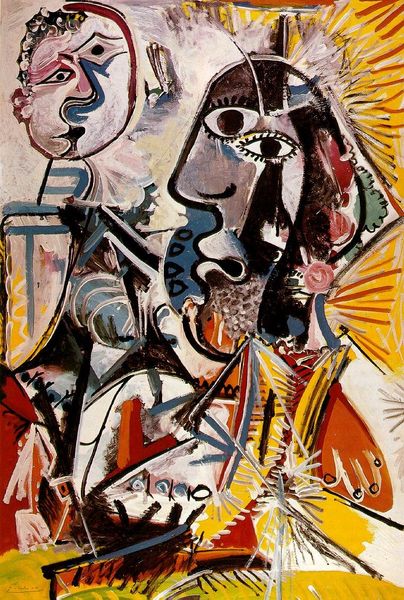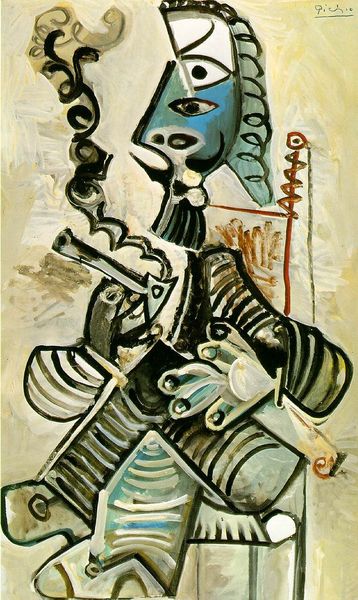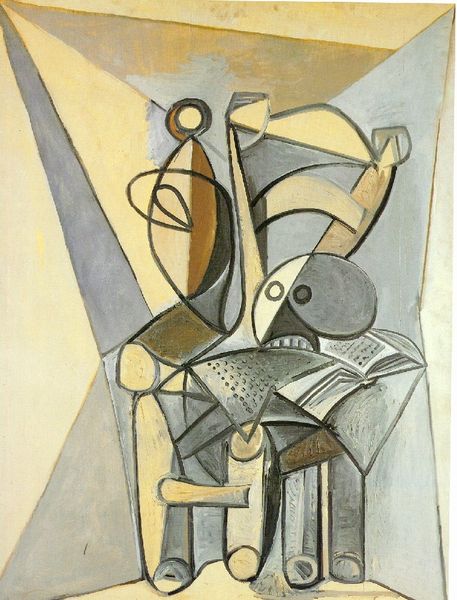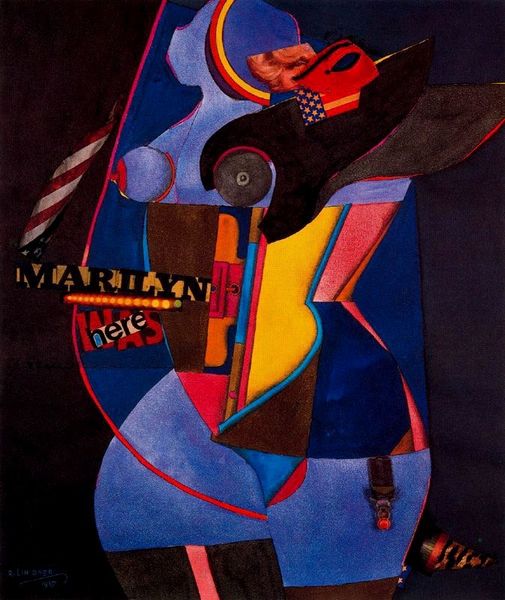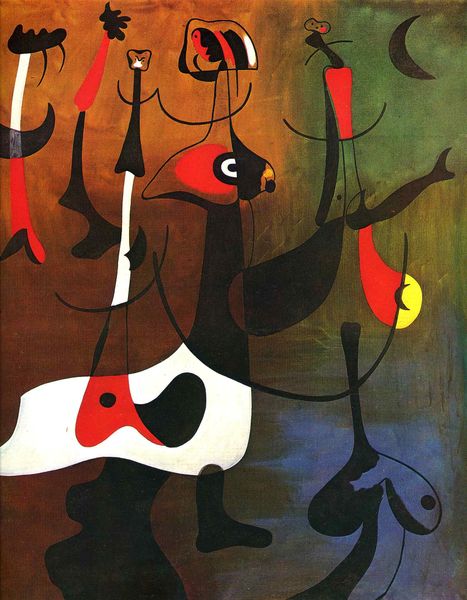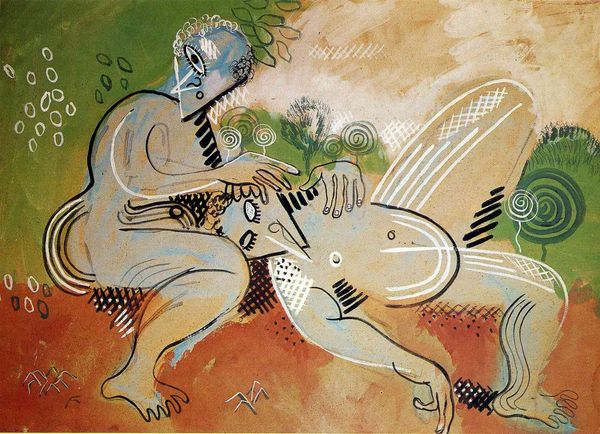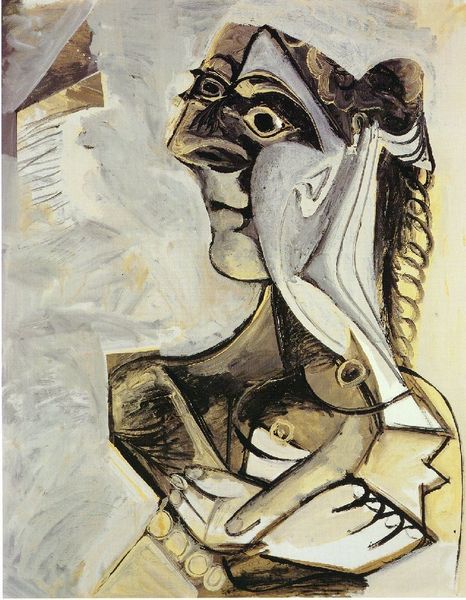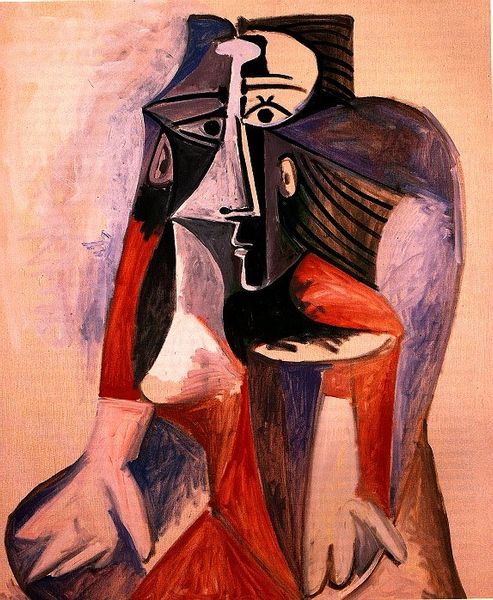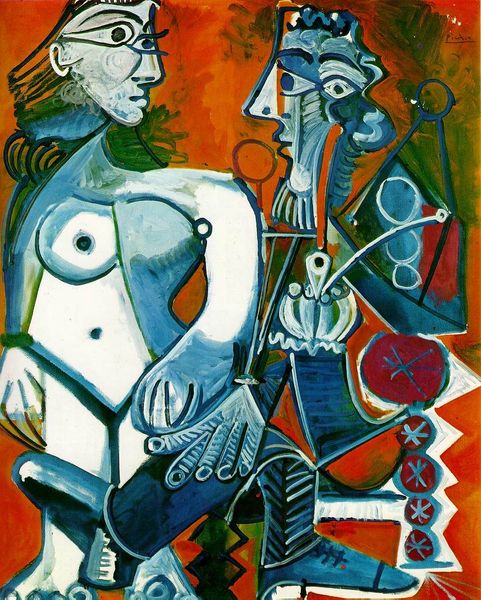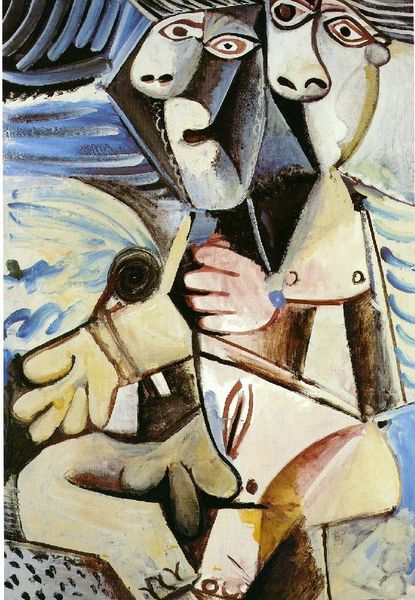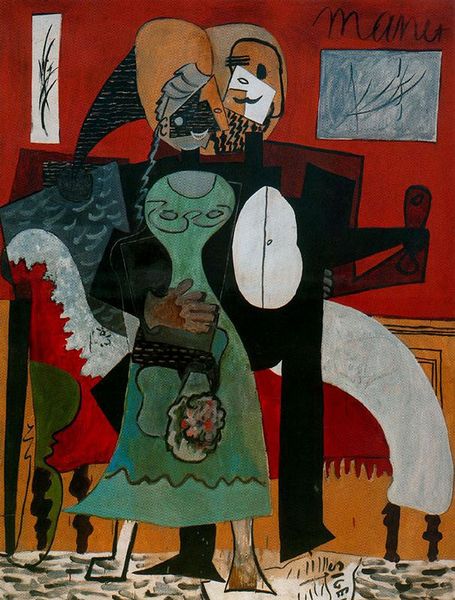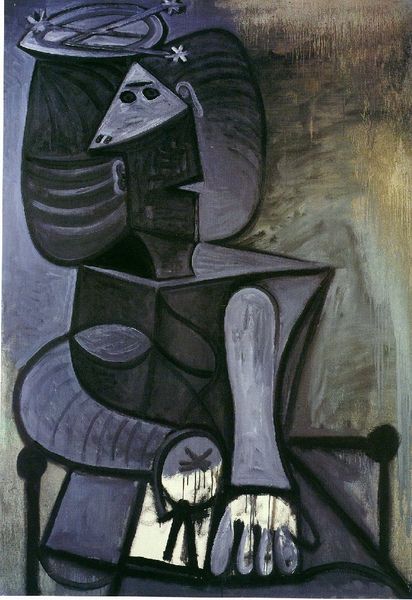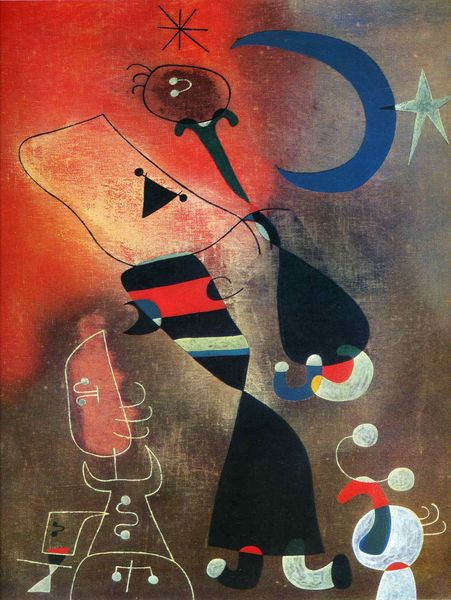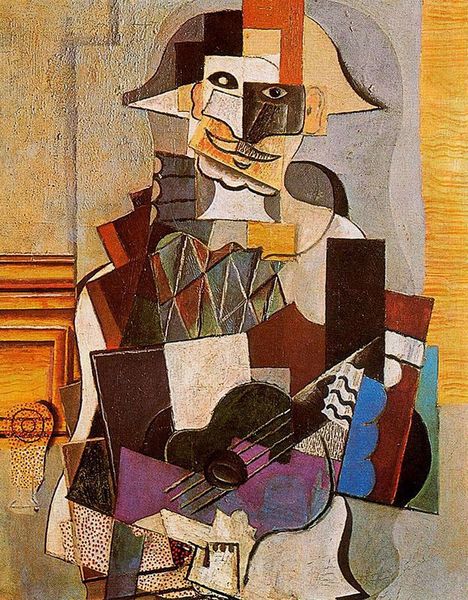
painting, oil-paint
#
portrait
#
cubism
#
abstract painting
#
painting
#
oil-paint
#
abstraction
#
portrait art
#
modernism
Dimensions: 162 x 130 cm
Copyright: Pablo Picasso,Fair Use
Curator: Standing before us is Picasso’s "The Man with a Pipe," an oil painting crafted in 1968, residing in a private collection. What strikes you initially? Editor: It has a theatrical feel, almost like a character study for a play. There's a bold sense of presentation that's both confident and a little unsettling. Curator: Unsettling, how so? Is it perhaps the cubist style that seems to fragment the identity of the subject, as if disassembling preconceived notions of masculinity and self-portraiture? Editor: Exactly! The flattened planes, disjointed features, and that strange green hair, creates a powerful image of fractured identity, something characteristic of its time. I mean, look at the historical context. Picasso created this during a period of great social upheaval. Is it pure chance or does the disfigured rendering represent the anxiety and absurdity of that era? Curator: One could see the pipe itself as a symbol deeply rooted in art history. It’s more than just a smoking instrument, it's a signifier of intellectual contemplation, leisure, and perhaps even subversion, recalling motifs found in earlier Dutch still lifes or even Magritte's iconic play with representation. Editor: True, but its presentation here, juxtaposed with the fractured form, adds another layer, one that maybe suggests the dissolution of these traditional archetypes. Curator: You’ve identified an element central to Picasso's brilliance – his consistent questioning of visual languages, as a modernist who saw how quickly visual cultures morph and reform under historical forces. "The Man with a Pipe" in its distortion, demands we consider not just the subject, but our expectations of representation itself. Editor: It certainly offers plenty to reflect on – it reminds us art doesn't simply reflect society but actively engages with it, even challenges it. Curator: Indeed, thank you for pointing out the way Picasso evokes more than the persona of the sitter but offers us a potent lens onto art's dynamic, questioning, and sometimes, disruptive role.
Comments
No comments
Be the first to comment and join the conversation on the ultimate creative platform.
